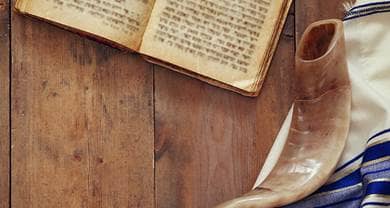- Trending:
- Pope Leo Xiv
- |
- Israel
- |
- Trump
- |
- Social Justice
- |
- Peace
- |
- Love

RELIGION LIBRARY
Conservative Judaism
Conservative Judaism (also known as "Historical Judaism" and "Masorti Judaism") is a branch of Judaism that moderates between the traditional Orthodox and the progressive Reform branches. Formed in the mid-19th century C.E. under the initiative of Zecharias Frankel, Conservative Judaism sought to adapt Judaism to modern ways of thought. Unlike the Reform movement, however, Frankel based his changes on traditional halakhic processes of rabbinic decision-making. He conceived of Judaism as a historically developing religion that promoted the conservation of Jewish law within the context of contemporary realities and ongoing encounters with God in every generation. Conservative Jews claim it is possible to maintain traditional Jewish elements while continuing in moderated modernization. In this, Conservative Judaism claims that both the Orthodox (traditionalism) and Reform (modernization) are too extreme. Jewish Theological Seminary in New York City has become an essential component in the continual growth of Conservative Judaism, educating most of its new rabbis. Like Orthodox Jews, Conservatives still maintain many traditional Jewish religious observances such as the dietary laws and the adherence to the Sabbath, but they have also moved beyond traditional practices by ordaining women as rabbis. Because of the diverse religious practices of Conservative Judaism, spanning between Orthodoxy to Reform, it is difficult to determine a uniform theological position consistent within the Conservative movement. Conservative Judaism has been significantly successful within the United States, becoming the largest Jewish association in the country.
Quick Facts
| Formed | 1886 |
| Adherents | 4,500,000 |
| Deity | God (monotheistic) |
| Sacred Text | Torah, Tanakh (Hebrew scriptures), Talmud |
| Origin | Europe |
| Headquarters | New York City, NY USA (United Synagogue of Conservative Judaism) |










